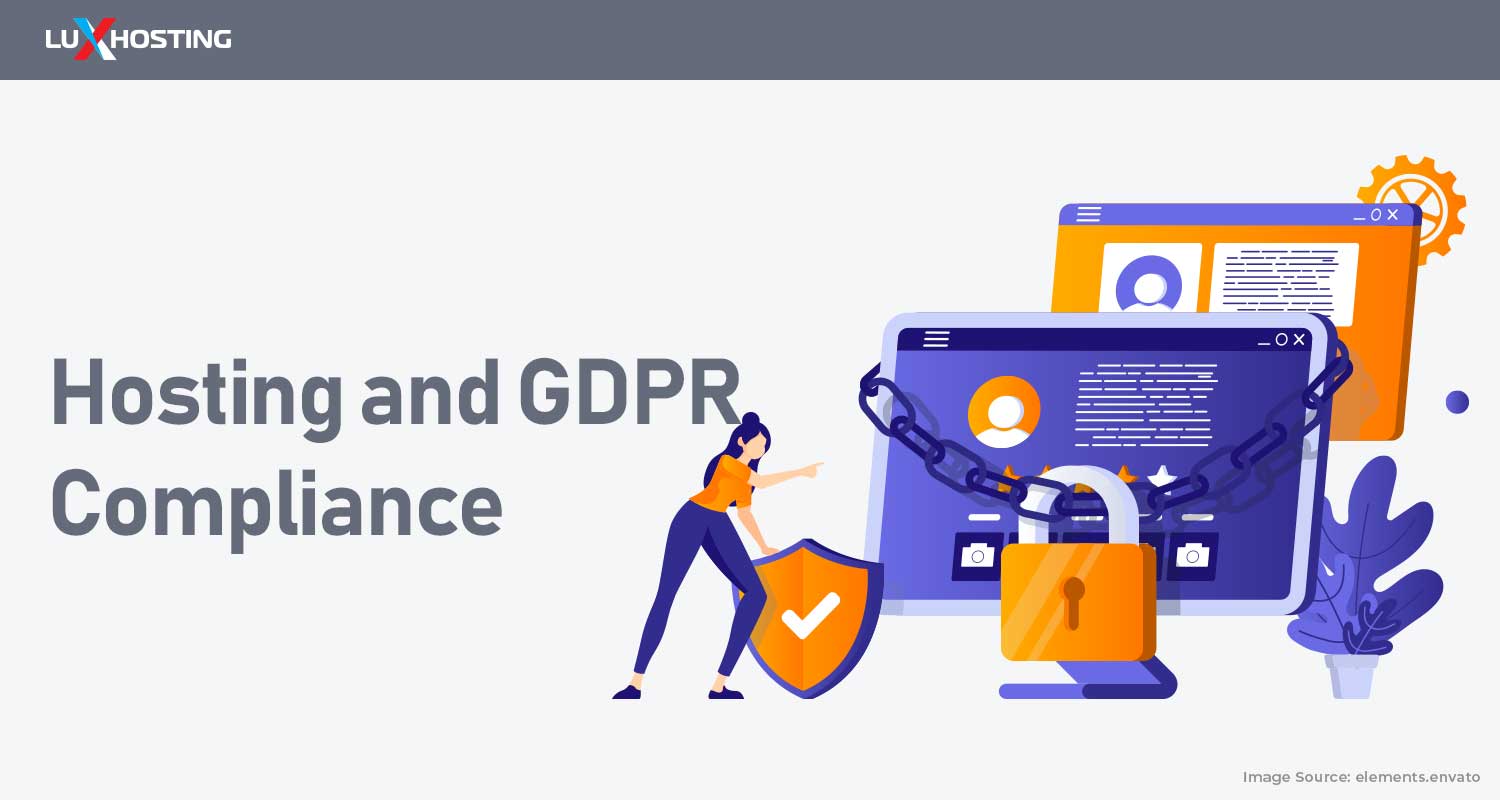In today's digital age, data privacy has become a paramount concern for individuals and organizations alike. The General Data Protection Regulation (GDPR) enacted by the European Union in 2018 has significantly reshaped how businesses handle personal data. For organizations that operate online, choosing the right hosting provider is a critical step toward ensuring GDPR compliance. In this article, we will delve into the intricate relationship between hosting and GDPR compliance and explore the essential factors to consider, with a focus on how Luxhosting can assist businesses in achieving and maintaining GDPR compliance.
Understanding GDPR Compliance
The GDPR is a comprehensive data protection regulation that aims to safeguard the rights and privacy of European Union citizens. It applies to any organization, regardless of its location, that processes the personal data of EU residents. This broad reach means that businesses worldwide must comply with GDPR requirements if they want to engage with European customers. One common misconception is that GDPR compliance is solely the responsibility of the data controller—the entity that determines the purpose and means of processing personal data. However, GDPR introduces the concept of joint responsibility. Both data controllers and data processors share responsibility for ensuring that personal data is handled in compliance with the regulation. This is where hosting providers come into play as data processors.
The Role of Hosting in GDPR Compliance
Hosting providers play a pivotal role in GDPR compliance for businesses that rely on their services. Here's a breakdown of the key responsibilities of hosting providers:Data Security One of the primary requirements of GDPR is the protection of personal data. Hosting providers must implement robust security measures to prevent data breaches, unauthorized access, and data loss. This includes encryption, firewalls, regular security audits, and access controls. Luxhosting, as a reliable hosting provider, offers state-of-the-art security protocols to safeguard your data.Data Processing Agreements (DPAs) Under GDPR, data controllers are required to have written agreements with their data processors (hosting providers) known as Data Processing Agreements (DPAs). These agreements outline the responsibilities and obligations of the hosting provider concerning data protection. Luxhosting is well-versed in GDPR compliance and can provide customized DPAs to ensure legal compliance.Data Hosting Location The GDPR places restrictions on the transfer of personal data outside the European Economic Area (EEA). Hosting providers like Luxhosting offer data centers within the EEA to ensure that personal data is stored in a GDPR-compliant manner. This geographical advantage simplifies compliance efforts for businesses that deal with EU customers.Data Breach Notification In the event of a data breach, hosting providers are required to notify the data controller without undue delay. Luxhosting has established procedures for detecting and responding to data breaches, facilitating timely notifications to affected parties as required by GDPR.Data Access and Deletion GDPR grants individuals certain rights, including the right to access and delete their personal data. Hosting providers must assist data controllers in fulfilling these requests. Luxhosting offers tools and support to help businesses respond to data subject requests promptly.Regular Audits and Compliance Checks To ensure ongoing GDPR compliance, hosting providers like Luxhosting conduct regular audits and compliance checks. This proactive approach helps identify and address potential vulnerabilities and ensures continuous adherence to the regulation.
How Luxhosting Can Help Achieve GDPR Compliance
Luxhosting understands the critical role it plays in the GDPR compliance ecosystem. As a hosting provider with a strong commitment to data security and privacy, here are some ways Luxhosting can assist businesses in achieving GDPR compliance:Robust Security Measures Luxhosting employs advanced security measures, including encryption, firewalls, and intrusion detection systems, to protect data hosted on their servers. These security protocols help minimize the risk of data breaches and unauthorized access.GDPR-Compliant Data Centers Luxhosting strategically locates its data centers within the European Economic Area, ensuring that personal data remains within the jurisdiction of GDPR. This eliminates the need for additional safeguards when processing EU customer data.Customized Data Processing Agreements (DPAs) Luxhosting can provide businesses with customized Data Processing Agreements (DPAs) that clearly outline the responsibilities and obligations of both parties in compliance with GDPR. These agreements help establish a strong legal framework for data protection.Data Breach Response In the unfortunate event of a data breach, Luxhosting has established procedures for rapid detection, containment, and notification, aligning with GDPR's strict breach notification requirements.Data Subject Rights Support Luxhosting offers tools and guidance to assist businesses in responding to data subject requests efficiently. This includes providing mechanisms to access and delete personal data when required.Ongoing Compliance Monitoring Luxhosting conducts regular audits and compliance checks to ensure that their hosting services meet GDPR requirements continually. This proactive approach helps businesses maintain compliance over time.
Conclusion
GDPR compliance is a complex and ongoing process that requires the active participation of both data controllers and data processors. Hosting providers like Luxhosting play a crucial role in ensuring that businesses can meet their GDPR obligations effectively. By choosing a GDPR-compliant hosting provider like Luxhosting, businesses can focus on their core operations while entrusting their data security and compliance needs to experts in the field. In an era where data privacy is paramount, making the right hosting choice is not just a business decision; it's a commitment to protecting the rights and privacy of individuals.



